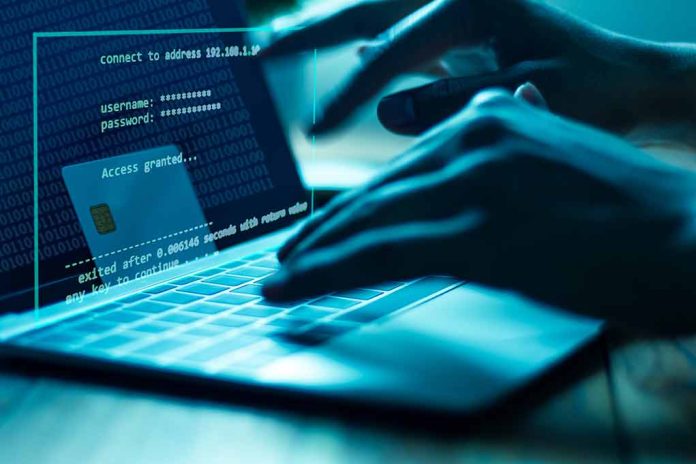
In a troubling breach of military protocol, a U.S. Army soldier faces charges related to the illicit selling of high-profile phone records.
At a Glance
- Cameron John Wagenius, a soldier accused of hacking, allegedly sold confidential records.
- The breaches targeted political figures, casting a spotlight on cybersecurity flaws.
- Investigations involve law enforcement agencies and the military to address vulnerabilities.
- Legal proceedings are set to continue in Seattle.
Charges and Allegations
Cameron John Wagenius, stationed at Fort Cavazos, faces charges for his role in selling confidential phone records. Using the alias “Kiberphant0m,” Wagenius is tied to hacking activities involving the phone records of political figures such as President-elect Donald Trump and Vice President Kamala Harris.
Two counts of unlawful transfer of confidential information have been filed against Wagenius. He is suspected of selling and attempting to sell the data without authorization, knowing they were improperly acquired. An investigation revealed the data hacking was part of a broader campaign exploiting weak security measures.
US Army soldier charged over alleged hacking of Trump, Harris phone records https://t.co/wTbp7psLf6
— Fox News (@FoxNews) January 2, 2025
Hacking Methods and Repercussions
The hacker known as Kiberphant0m allegedly accessed phone records through the Snowflake cloud storage platform. This breach, including claims of hacking AT&T call logs of the 2024 candidates, emphasizes the critical need to enhance security protocols. Fortunately, Wagenius was apprehended near Fort Hood, Texas, on December 20, highlighting law enforcement’s swift response to this cybersecurity threat.
Many breaches were reportedly posted on BreachForums, where Kiberphant0m boasted about his illegal activities. While the indictment lacks specifics on the employed hacking methods, the incidents reflect vulnerabilities in cybersecurity systems that must be addressed. Collaboration between military and law enforcement aims to avert future incidents.
Challenges and Future Actions
Wagenius’s extradition to Seattle for court proceedings will be crucial in understanding the full extent of the breaches and ensuring justice. The involvement of Fort Cavazos and other agencies underscores the case’s complexity and the military’s commitment to security. It highlights the pressing need for improved cybersecurity measures within both military and civilian infrastructures.”
Investigations are also exploring the support Wagenius may have had from others within the cybercriminal landscape. As legal actions proceed, a broader discussion on strengthening cybersecurity protocols becomes ever more necessary to prevent similar incidents from occurring in the future.
Sources
1. Trump Phone Hacker: 20-Year-Old U.S. Army Soldier Arrested
2. US Army soldier charged over alleged hacking of Trump, Harris phone records




